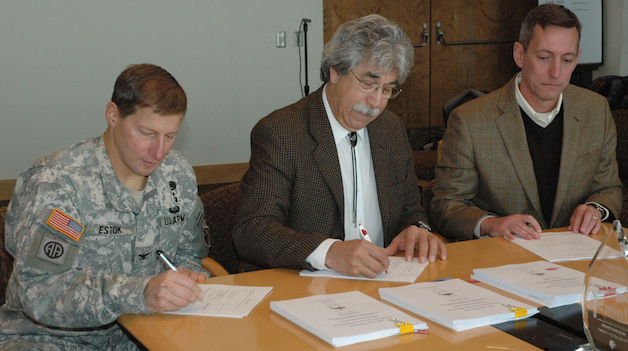Events in Everett Sunday afternoon; free HIV tests by appointment for at-risk people Dec.2, 4, & 6
Source: Snohomish Health District
SNOHOMISH COUNTY, Wash. – The public is welcome to free events in downtown Everett to commemorate World AIDS Day 2013 on Sunday, Dec. 1. Three community partners will sponsor a memorial walk and program that afternoon to build awareness of the impact HIV/AIDS has on our community. All activities take place at the Snohomish Health District, 3020 Rucker Ave., Everett, Wash. Testing opportunities are available at the Health District Dec. 2-6.
Sunday, Dec. 1
1 p.m. Remembrance walk leaves the Snohomish Health District, 3020 Rucker Ave., goes to AIDS Memorial of Snohomish County at 3021 Wetmore Ave., Everett
2 p.m. Return to the Health District for a program, music, and light refreshments
The afternoon program includes remarks by Rev. Julie Montague from Everett Unity Church, and comments from Snohomish County residents living with HIV/AIDS. The program also features music by local musicians Terri Anson and Savannah Woods. The program is free and open to the public.
Local sponsors include Snohomish Health District, Snohomish County Gay Men’s Task Force, and AIDS Project Snohomish County. For information about AIDS Project Snohomish County, please contact Jeannine Fosca at 425.923.7656 or Dancing_lively@yahoo.com.
World AIDS Day events remember those lost to AIDS, support those living with the disease, reinforce the need to combat stigma, discrimination and intolerance, and underscore the need for routine HIV screening.
“The medical community has made great advances in treating HIV/AIDS in recent years,” said Dr. Gary Goldbaum, Health Officer and Director of the Snohomish Health District. “However, there still is no cure. Early treatment is critical to both help those who are infected and to prevent spread to others. Screening is key”
An estimated one in five Americans infected with HIV is unaware of it. According to the Washington State Department of Health, 1,130 people in Snohomish County have been diagnosed with HIV since 1982. Screening for tuberculosis is also recommended for HIV-positive people.
Monday, Dec. 2
9 a.m.-noon, 1-5 p.m. — Free rapid-tests for HIV offered to anyone at risk of the disease, the Health District, 3020 Rucker Ave., Suite 108. Call for appointment: 425.339.5298.
Tuesday, Dec. 3
3-6 p.m., special health event for gay and bisexual men – tests available for HIV, Hepatitis C, and syphilis; also vaccinations for Hepatitis A and B. Come to the Health District, 3020 Rucker Ave., Suite 106, Everett. No appointment needed.
Wednesday, Dec, 4
9 a.m.-noon, 1-5 p.m. — Free rapid-tests for HIV offered to anyone at risk of the disease, the Health District, 3020 Rucker Ave., Suite 108. Call for appointment: 425.339.5298.
Friday, Dec. 6
9 a.m.-noon, 1-5 p.m. — Free rapid-tests for HIV offered to anyone at risk of the disease, the Health District, 3020 Rucker Ave., Suite 108. Call for appointment: 425.339.5298.
Established in 1959, the Snohomish Health District works for a safer and healthier community through disease prevention, health promotion, and protection from environmental threats. For information about our HIV/AIDS education and outreach services, and to make an appointment call 425.339.5298. Please visit our Facebook page and website: www.snohd.org.







